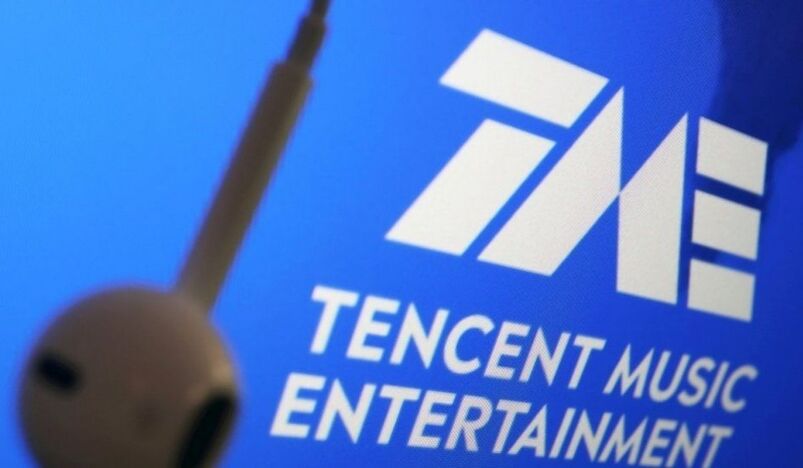
China has been cracking down on technology companies in recent months
Shares in Tencent have fallen after China ordered the technology giant to end exclusive music licensing deals with record labels around the world.
The move is aimed at tackling the company's dominance of online music streaming in the country.
It was also fined 500,000 yuan (£56,000; $77,120) for unfair practices in the online music market.
Tencent controls more than 80% of China's exclusive music streaming rights after an acquisition in 2016.
On Saturday, the State Administration of Market Regulation (SAMR) said the firm's activities in the Chinese online music market broke the country's anti-monopoly rules.
Tencent bought China Music Corporation in 2016, giving it rights to more than 80% of all music tracks in the market and an unfair advantage over rivals, the SAMR said in the ruling.
The company and its affiliated businesses have been told that they can no longer engage in exclusive deals over music rights and must dissolve any existing agreements within 30 days.
They can retain exclusive deals with independent artists, as they expire after three years.
Tencent and Tencent Music Entertainment, the company created by the takeover of China Music Corporation, said they will abide by the ruling and comply with the requirements laid out by the regulator.
Global record labels like Universal Music, Sony Music and Warner Music have all struck deals with Tencent giving its streaming platforms access to thousands of artist music catalogues.
In Hong Kong, shares in Tencent Holding were down by 5.7%, while Tencent Music Entertainment Group's shares were 6.9% lower.
This is the latest in a series of actions taken by Chinese authorities against some of the country's biggest technology companies.
Last week, shares in ride-hailing giant Didi slumped by more than 30% in New York after a report that regulators in Beijing are considering serious penalties against the company.
In early July, the Cyberspace Administration of China (CAC) ordered online stores not to offer Didi's app, saying it illegally collected users' personal data.
Didi's shares have now fallen by more than 40% since making its New York Stock Exchange debut on 30 June.
Also last week, China's internet watchdog ordered some of the country's biggest online platforms to remove inappropriate child-related content.
Kuaishou, Tencent's messaging tool QQ, Alibaba's Taobao and Weibo have been summoned by the Cyberspace Administration of China (CAC).
CAC said the platforms must "rectify" and "clean up" all illegal content and fined them.
Earlier this year, Alibaba accepted a record $2.8bn fine after an official investigation found that it had abused its market position for years.
.jpg)
Qatar Secures Place Among the World's Top 10 Wealthiest Nations
.jpg)
Hamad International Airport Witnesses Record Increase in Passenger Traffic

Saudi Arabia: Any visa holder can now perform Umrah

What are Qatar's Labour Laws on Annual Leave?
Leave a comment